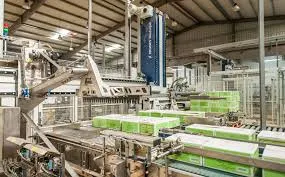The health risks which Nigerians are exposed to have once again been highlighted as The National Agency for Food and
Drugs Administration and Control, NAFDAC, has uncovered fake and unregistered
products valued at over N200 million.
The products, confiscated through a
whistle-blower’s report, were stocked in a building at 11, Omotosho Crescent,
off Ewedana Street, Toll Gate, Ota in Ogun State. The building also served as
production outlet for bitters with fake NAFDAC registration numbers.
At a briefing in Lagos yesterday,
Acting Director-General of NAFDAC, Mrs. Yetunde Oni, explained that the
building is a bungalow of five bedrooms, with two residential rooms, while the
other three, the parlour and the kitchen were used for production of
unregistered, deceptive and counterfeit products.
Oni, who was represented by the
Director, Port Inspectorate, Mr. Kingsley Ejiofor, gave the name of the owner
(withheld), adding that the products were being produced in a dirty environment
by unqualified personnel.
According to her, empty plastic
bottles, caps, cartons and sticker labels of other products were also found in
the facility, while the address on the labels of all the products were fake.
Oni said the agency also raided
Ogbaru Relief Market in Onitsha, Anambra State, where they discovered several
shops used for the production, distribution, sale and storage of fake and
counterfeit alcoholic and non-alcoholic drinks of various popular brands valued
at over N200 million.
As most of the bitters produced in Nigeria are alcohol based, experts have warned on the health dangers of consuming fake alcohol based products. Properly produced and certified
alcoholic drinks are made with ethanol – alcohol that’s safe to drink in
moderation. But fake alcoholic drinks can be produced using other cheaper types
of alcohol which can have serious adverse effects on your health.
Drinkaware’s Chief Medical Advisor
Professor Paul Wallace explains: “Commonly used substitutes for ethanol include
chemicals used in cleaning fluids, nail polish remover and automobile screen
wash, as well as methanol and isopropanol which are used in antifreeze and some
fuels. These other types of alcohol can produce similar effects to ethanol in
terms of making you feel tipsy. But they are also potentially very
dangerous.”
Drinking alcohol containing these chemicals can cause nausea and vomiting, abdominal pain, drowsiness and dizziness. It can also lead to kidney or liver problems and even coma. Methanol, a substance which can be used in fake vodka, may cause permanent blindness.
“Drinking illegally produced alcohol
should be avoided at all costs,” says Dr Wallace. “You don’t know what’s in it
in terms of the actual chemicals – and you don’t know the strength of what
you're drinking because it’s not been produced to the standards of commercial
alcohol.”
Jeremy Beadles, former Chief
Executive of the Wine and Spirits Trade Association, believes most consumers
won’t come across fake alcohol and says that it’s important to keep the problem
in perspective. “The vast majority of alcohol is produced and sold
legitimately,” he says. “Most pubs, corner shops, off licenses and other
retailers are completely legitimate businesses and wouldn’t get involved with
it.”
However, it’s important to know how to spot—and avoid—fake alcohol if you do come across it.
According to the Trading Standards
Institute, people need to remember ‘the 4 Ps’: Place, Price, Packaging and
Product.
Place: Make sure you buy from a reputable supermarket, off licence
or shop.
Price: If a deal looks too good to be true, it most probably is.
Packaging: Look out for:
- Poor quality labelling, including things like spelling mistakes.
- UK duty stamp—spirits in bottles 35cl or larger and 30% ABV or higher have to have a duty stamp, which indicates that tax has either been paid or is due to be paid on the contents of the bottle. They’re usually incorporated into the label or stuck on the glass. If it’s not there, it’s illegal
- Properly sealed caps. If the seal is broken, don’t drink it. Even if it’s not illegal, it could have been tampered with.
- Fake bar codes. If you have an app on your mobile that scans bar codes, scan it and see if it’s listed as the correct product.


















0 Comments:
Post a Comment